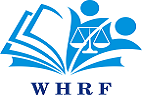CZECH REPUBLIC
Discrimination against Roma persisted. Parliament again failed to ratify an international convention on violence against women and take forward a bill on same-sex marriage. The European Court of Justice ruled against the government for failure to accept mandatory refugee quotas. Up to 16% of primary school children were reportedly unable to access education online during the lockdown related to the COVID-19 pandemic. Concerns remained over continuing arms transfers to parties in the Yemen conflict.
Background
Both the Czech authorities and the EU continued to investigate alleged conflicts of interest by Prime Minister Andrej Babiš relating to EU subsidies received by his business interests. Prior to the first lockdown as a result of the pandemic, in March thousands of people held a demonstration in the capital, Prague, against the Prime Minister and what they perceived as his corrosive effect on the country’s institutions.
The tenure of the new Public Defender of Human Rights, appointed in February, provoked controversy. Over 300 academics and lawyers signed an open letter in April, concerned that he appeared to demonstrate insufficient commitment to certain issues including minority rights.
Discrimination
Roma
Discrimination against Roma remained widespread, although the new Public Defender of Rights claimed that it was only a marginal problem.
Some steps were taken towards implementing a mechanism for providing compensation to Roma women who were victims of forced sterilization. In September the Council of Europe’s Human Rights Commissioner called on the lower house of parliament to adopt a draft law providing one-off compensation for victims. The bill was awaiting its first reading at year’s end.
The Committee of Ministers of the Council of Europe held a regular review in December of the measures taken to address the discriminatory segregation of Roma in schools and classes for pupils with mental disabilities (following the continued failure to implement the judgment in D.H. and Others v Czech Republic). The Committee noted some positive trends but remained concerned that the majority of Roma pupils assessed as needing individual educational plans were still educated outside the mainstream.
Women
Parliament failed to ratify the Council of Europe Convention on preventing and combating violence against women (Istanbul Convention) although it was scheduled to be submitted for ratification in 2018. According to a group of Czech NGOs, the Coalition Against Violence, annually some 168,000 victims of domestic violence have sought medical help in recent years. Service providers noted an increase in the number of domestic violence incidents during the restrictions imposed as a result of the pandemic.
In June the European Committee of Social Rights made public its decision (in the case of University Women of Europe v. Czech Republic) that there had been insufficient progress on the right to equal pay and the balanced representation of women in decision-making bodies in private companies. In response the Czech Government Commissioner for Human Rights submitted a new draft strategy on gender equality 2020-2030 to the government.
Lesbian, gay, bisexual, transgender and intersex (LGBTI) people
Parliament again failed to table a vote on a bill, originally approved by government in 2018, which would fully recognize equal marriage for same-sex couples. Such couples had been able to register their partnerships since 2006, but this did not permit joint adoption.
Right to education
According to the Czech School Inspectorate, approximately 11-16% of primary school children were unable to access education online during the first lockdown as they lacked access to an internet connection and/or appropriate devices, with under 1% of pupils not involved in education in any form.
Rights of refugees, asylum-seekers and migrants
The government continued to refuse to participate in any relocation efforts within the EU, including to accept unaccompanied child refugees. Despite calls from Greece to accept 40 unaccompanied child migrants, the Interior Minister claimed that the only refugees in Greece were young men who he did not consider as children as they were around 17 years old. He also said that accepting young male refugees aged 12-17 would pose serious security risks for the public.
The European Court of Justice ruled in April that the Czech Republic (together with Poland and Hungary) had broken European law by failing in its obligations and commitments to relocate asylum-seekers and refugees. The European Commission had brought a case against the three countries to the Court in 2017, for refusing to participate in the EU’s Emergency Relocation Scheme which sets mandatory relocation quotas.
Irresponsible arms transfers
Concerns remained that continued arms transfers to the Saudi Arabia/United Arab Emirates-led coalition could be used to commit or facilitate serious violations of international human rights and humanitarian law in the Yemen conflict.
